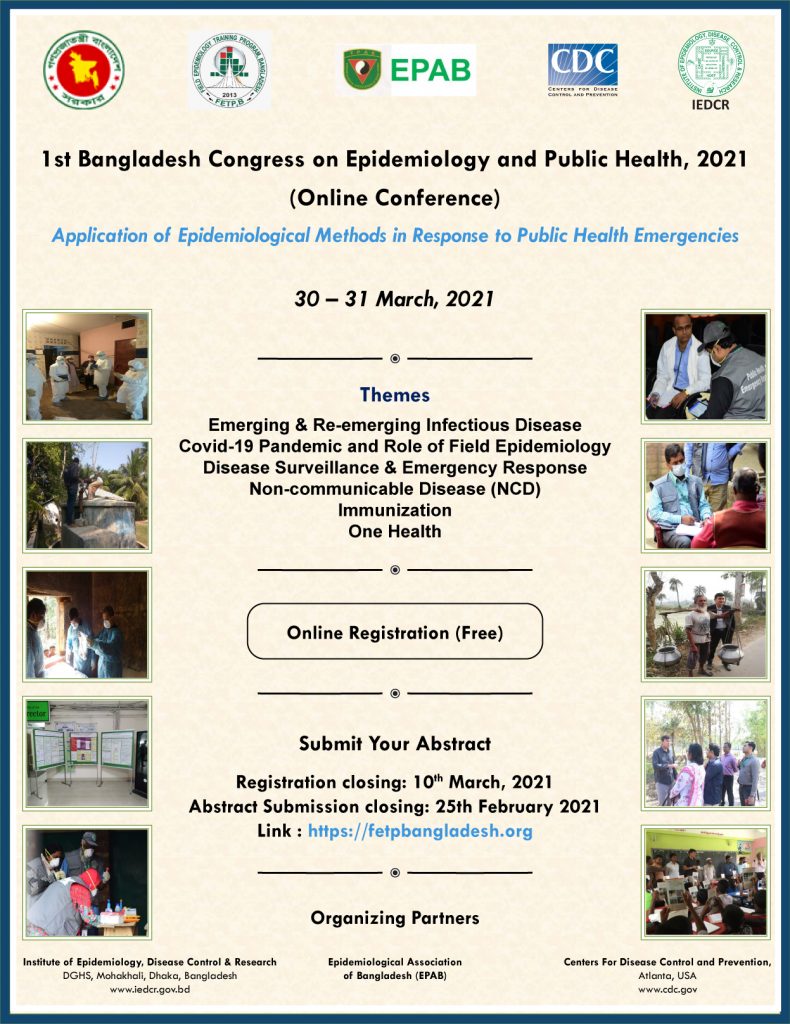Application of Epidemiological Methods in Response to Public Health Emergencies
Throughout the history of mankind, several infectious disease pandemics affected the world, for example, COVID-19, Ebola, Influenza, plague, smallpox, cholera etc. During the pandemics, epidemiological approaches played a key role to understand the natural history of the disease and to identify measures to control and contain the pandemic, protected health and saved lives. Field Epidemiology, a newer specialty of epidemiology, is contributing globally by developing a workforce trained in applied epidemiology to stay vigilant and combat public health emergencies.
Every country of the world facing the same global challenges of the pandemics of novel emerging and re-emerging infectious pathogens. The recent COVID-19 pandemic emphasized the importance of preparedness in epidemiological and public health aspects of a country. Epidemiologists around the world are synchronizing different approaches to find out the answers put forwarded by COVID-19 infection.

Earlier in this century the world also experienced an epidemiological transition to non-communicable diseases from communicable diseases. Therefore, we need to encourage public health professionals to develop scientific knowledge and recommend innovative and acceptable prevention strategies to control both communicable and non-communicable diseases.
With the vision of sharing knowledge and increase the countries capacity Field Epidemiology Training Program, Bangladesh (FETP,B) of the Institute of Epidemiology Disease Control and Research (IEDCR) and, Epidemiological Association of Bangladesh jointly organizing a two days online ‘1st Bangladesh Congress of Epidemiology and Public Health’ on March 31 & April 1, 2021 with the support from Training Programs in Epidemiology and Public Health Interventions Network (TEPHINET) and Centers of Disease Control and Prevention, Atlanta, USA (US CDC).
This platform will enable epidemiologists, young researchers, public health professionals and field epidemiologists from Bangladesh and different countries around the globe to share their experience in the field of public health. Moreover, this conference will provide a unique opportunity for the fellows and graduates of the Field Epidemiology Training Program, Bangladesh (FETP,B) to share their fieldwork to the national and international public health community. Furthermore, it will also create a global network for public health experts in preventing future pandemics.
Objective 1
To show case public health researches and epidemiolocal approaches to identify public health priorities in Low- and Middle-income countries
Objective 2
To encourage more rigorous scientific assessment and studies to strengthen capacities to response in public health emergencies
Objective 3
To increase the visibility of the FETPs’ field experiences as well as the work of other public health professionals globally and to bring to the forefront work, achievements, and research they have conducted on COVID-19.
For more information: https://fetpbangladesh.org/
